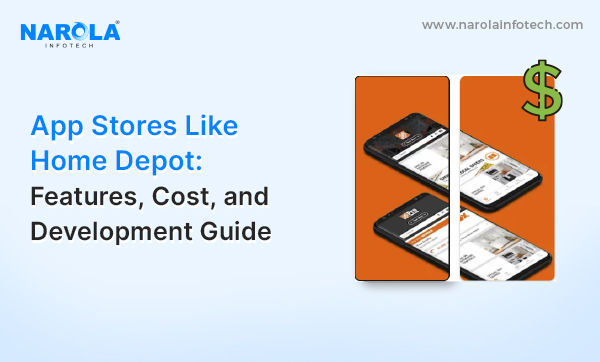Why Low Code is the Future of Mobile App Development
- NarolaInfotech

- Sep 11, 2024
- 3 min read
In today's fast-moving business world, creating mobile apps quickly and affordably is crucial. Low code mobile app development is changing the game by enabling faster, simpler, and more accessible app creation without extensive coding. This blog explores what low code mobile app development is, its benefits, how it works, and why it’s a smart choice for businesses looking to innovate and stay ahead.
What is Low Code Mobile App Development?
Low code development is a way to build mobile apps with minimal or no coding. It uses a visual interface where users can drag and drop elements, automate tasks, and create full applications without needing to be expert programmers. This method speeds up app development by providing features like a visual design environment, pre-built connectors to data or services, and reusable code templates. This means apps can be developed faster and at a lower cost.
Here's how low code mobile app development works:
1. Visual Development Environment: Low code platforms use a visual environment where users can design and customize mobile apps by dragging and dropping components and using visual logic. This makes the process easier and faster, even for those without deep technical skills.
2. Use of Reusable Components: Low code platforms provide pre-built elements like forms, buttons, and workflows that can be reused in different apps. This reduces repetitive coding tasks and allows developers to focus on the app’s functionality and user experience.
3. Easy Integration with Existing Systems: Low code development simplifies the process of connecting new apps to existing systems, databases, and services. This ensures a smooth flow of data and operations without needing complex coding.
4. Automated Testing and Quality Checks: To ensure the app works well and meets quality standards, low code platforms include automated testing and validation features. This helps developers quickly identify and fix issues, resulting in a more reliable and efficient development process.
5. Rapid Deployment: Low code development allows for fast deployment of apps across different environments, such as cloud, on-premises, or hybrid setups. This flexibility means businesses can quickly respond to changes, launch new features, or update existing ones without long delays.
Benefits of Low Code Mobile App Development

1. Speed and Efficiency
With low code development, businesses can build apps 5 to 10 times faster than traditional methods. This speed advantage helps in launching new features quickly, adapting to market changes, and testing new ideas with minimal delay.
2. Cost Savings
Traditional app development often requires expensive skilled developers, long testing phases, and longer timelines. Low code solutions use fewer resources, translating to significant cost savings that can be invested in other critical areas.
3. Easy for Everyone to Use
Low code platforms are designed to be user-friendly, allowing people with limited technical skills to participate in app development. This encourages collaboration across different teams within a company.
4. Scalability and Flexibility
Low code development isn’t just for small projects. Many platforms offer scalability and flexibility, making them suitable for complex, enterprise-level applications that need advanced features and integrations.
Final Thoughts
Low code mobile app development is revolutionizing how businesses create apps by making the process faster, more affordable, and accessible to everyone, not just developers. With its speed, cost-efficiency, and flexibility, low code is an ideal choice for businesses looking to innovate quickly and stay competitive in a digital-first world.











Comentarios